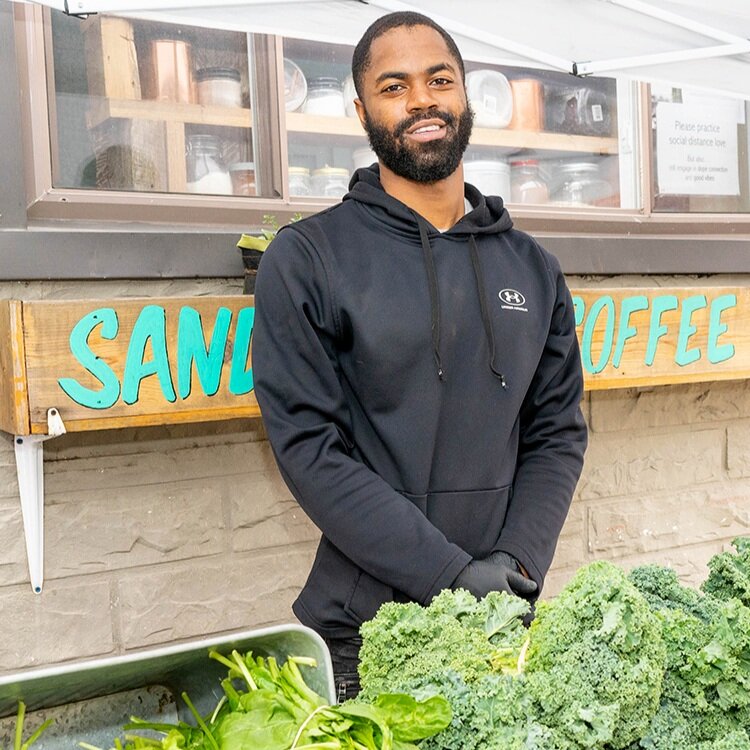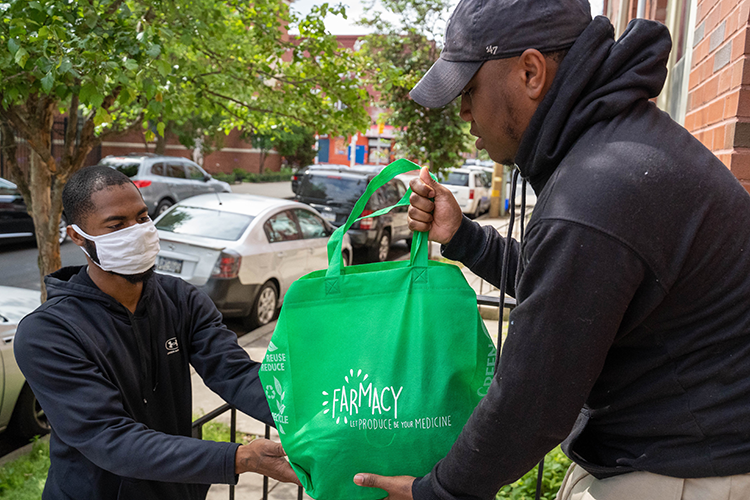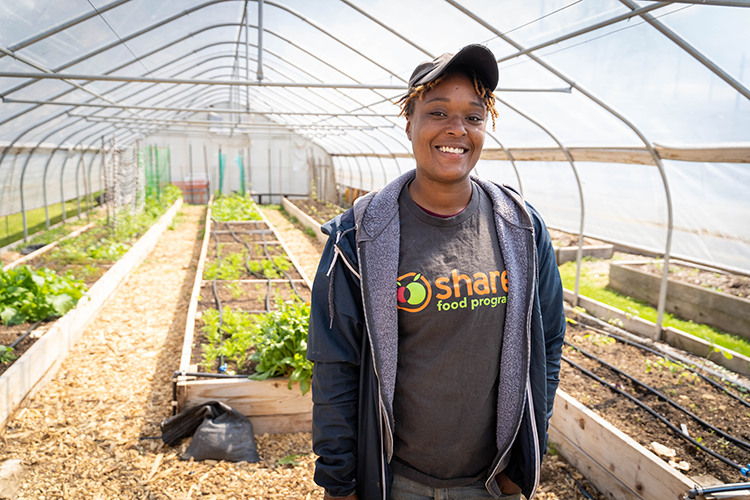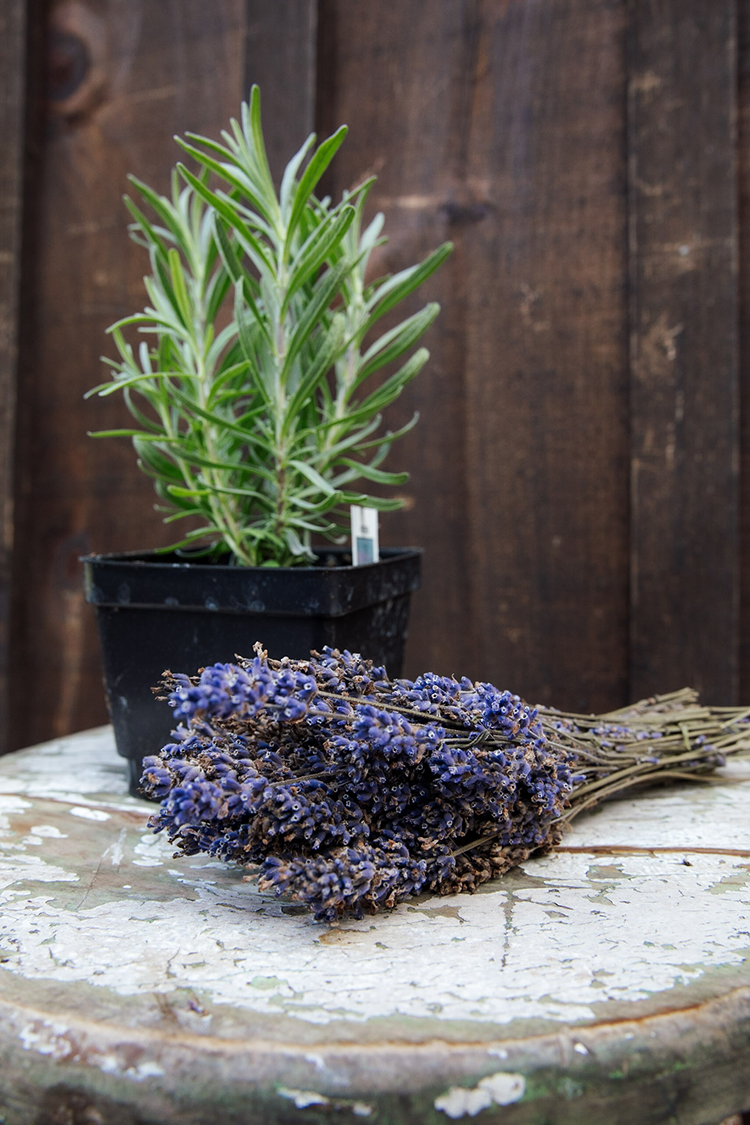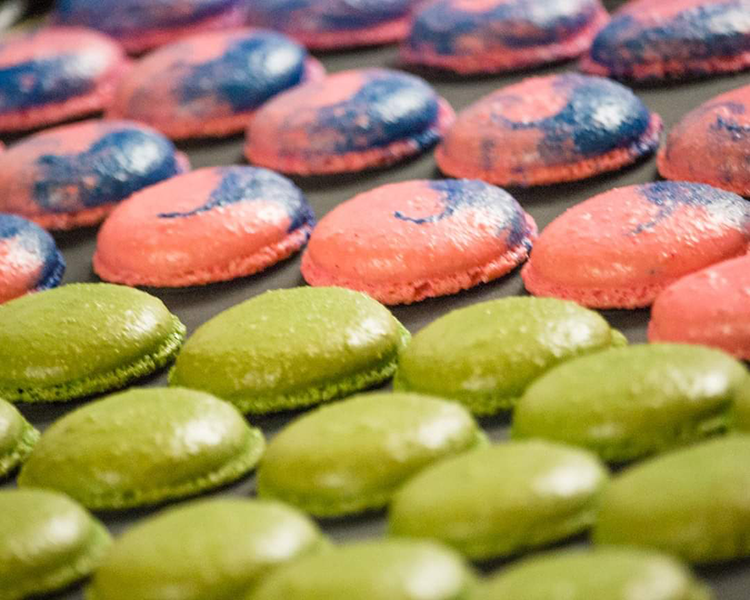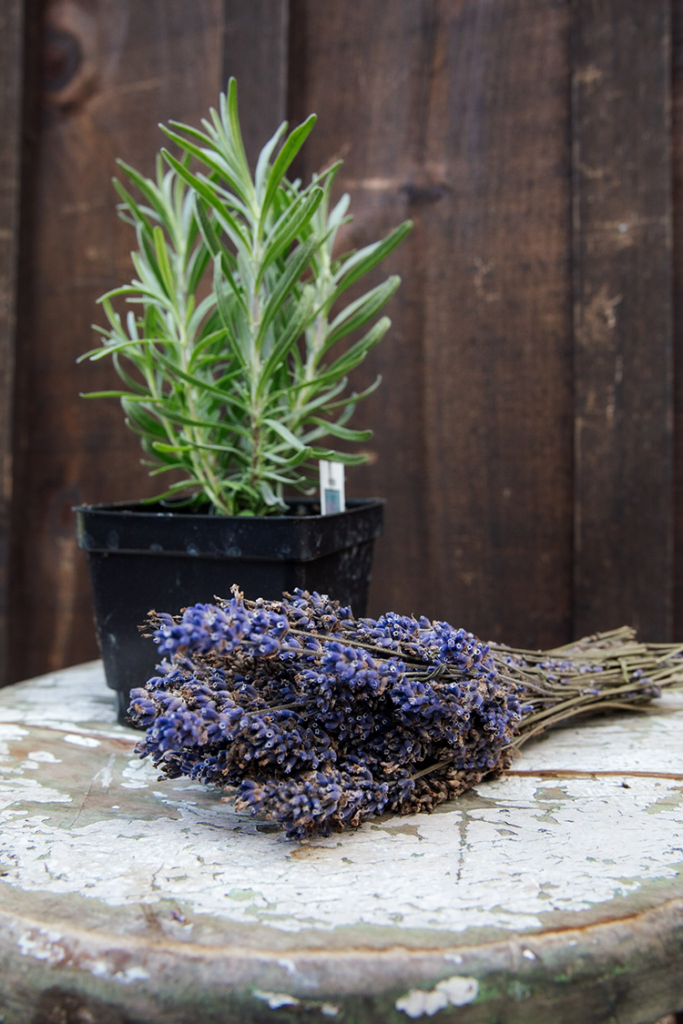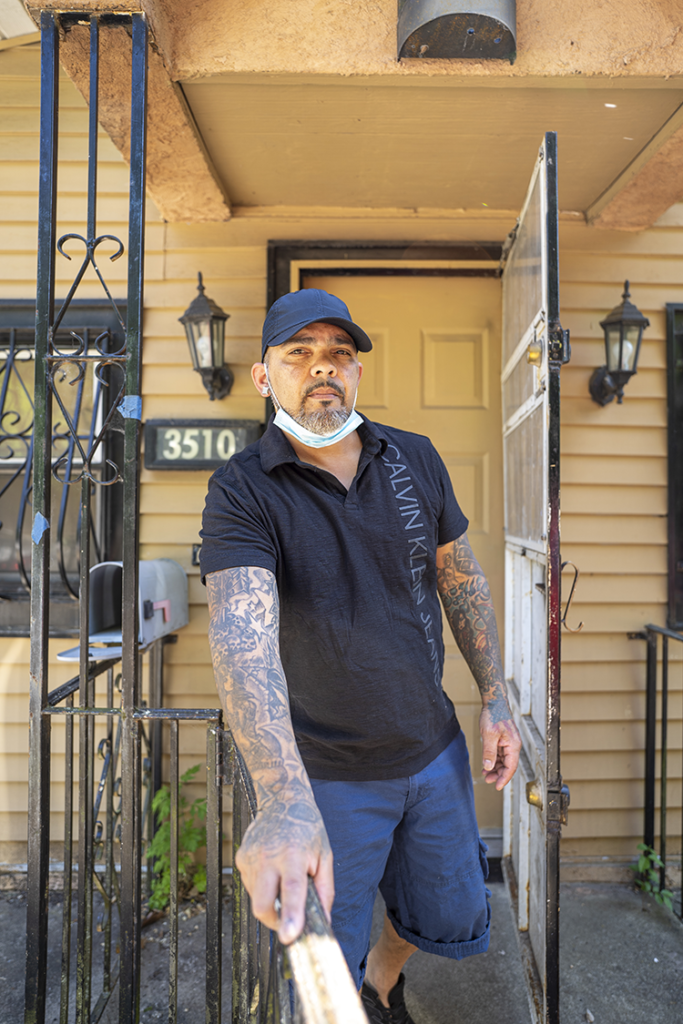Khalil steward first envisioned Philly Farmacy while working on a class project at Delaware Valley University.
“I had an idea for a school bus or old ambulance turned into a mobile produce store,” Steward says.
The mental image stayed with him, and he made Philly Farmacy a reality in 2019, a year after graduating from college. He currently runs the operation out of his pickup truck, making fresh produce deliveries to primarily Black and Brown customers.
He wants Philly Farmacy to be accessible so that customers can have fresh produce without using up too much of each paycheck. He says that some food subscriptions are far too expensive for many Philadelphians.
“The CSA model doesn’t really work here. A lot of people can’t afford them,” Steward says. He operates Philly Farmacy by keeping the prices low, and his delivery schedule takes into account when Supplemental Nutrition Assistance Program (SNAP) electronic benefits transfer (EBT) cards (aka food stamps) are replenished.
Steward sources the majority of his produce from Black farmers in Philadelphia, which sets him apart from other grocery delivery services.
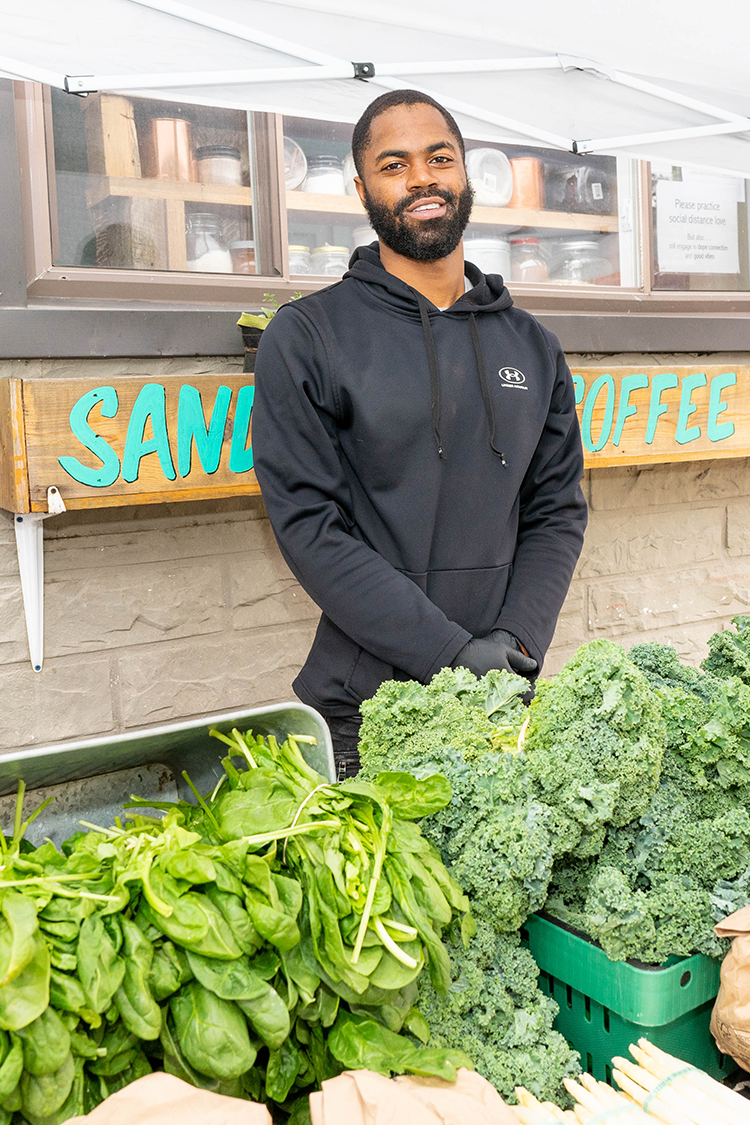
“I know most of the farmers here. I reach out to them or they reach out to me,” says Steward, who connected with a lot of local farmers during his time at Delaware Valley’s School of Agriculture and Environmental Sciences.
Steward has partnered with Mill Creek Farm, Nice Roots Farm and even friends who grow produce in their backyards. Most other grocery services cannot compete with such hyperlocal sourcing. Steward likes to highlight the ingenuity and creativity of urban farmers, who make do with limited space and resources.
“Urban farming is kind of hard. You have to be creative because you have less space,” Steward says.
Steward currently works for the nonprofit Share Food Program as a receiving manager. Before that, he held a variety of farming internships and jobs. He has worked for Carversville Farm in Mechanicsville, Life Do Grow Farm in North Philly and Harvest of Hope in Cape Town, South Africa.
“The CSA model doesn’t really work here. A lot of people can’t afford them.”
— Khalil Steward, Philly Farmacy founder
Share has been providing fresh food to vulnerable citizens in and around Philadelphia for 30 years. It delivers food to seniors and those with disabilities and donates food to more than 100 partner pantries.
In early 2020 Steward used his connection to Share to help promote Philly Farmacy and connect with neighbors.
“When the pandemic started I was giving out free food from Share and Carversville Farm. Then I told people I was about to start selling produce,” Steward says.
Breah Banks, farm and land manager for Nice Roots Farm, was happy to give Steward extra produce. Nice Roots, located in Allegheny West, is owned by Share. Half of the produce grown by Nice Roots is donated to those in need, while half is sold at farmers markets. The proceeds from these sales directly support Share’s operating costs.
“Khalil was looking to showcase farmers and local growers in the city,” Banks says. “At the end of the market day I would have leftover swiss chard or bok choy that I would give to Khalil.”
Steward first began selling local produce at Franny Lou’s Porch at pop-up markets. He reached out to owner Blew Kind, and they worked together to make the markets a community event.
“He emailed me. I gave him a call and we had a great conversation,” Kind says. “I said, ‘Khalil, people love coming out here. Should I bring in more vendors?’ ”
The Rad Love Market now happens every other week at Franny Lou’s. Featured vendors have included the Random Tea Room, Crystal Luxe and Black Soul Vintage.
Kind’s conversations with Steward inspired her to offer business advice to other Philadelphians. She likes to focus her help on Black and Brown business owners and aspiring business owners.
“[Khalil] said, ‘You should charge for this kind of help.’ I started a side consulting business,” Kind says. “I have two one-on-ones. I have a questionnaire: Where are you and how can I help you? I give some homework around starting a business plan and around starting costs. Having accountability and encouragement really helps with motivation.”
Steward now offers pop-up produce markets at Franny Lou’s and drop-offs at Franny Lou’s and Uncle Bobbie’s Coffee & Books. He also does home deliveries around the 1st and 15th of the month. The delivery fee is $5 for those in Philadelphia and $10 for the surrounding suburbs. Each harvest bag costs $25 and includes two leafy greens, three vegetables and three fruits.
“[EBT] kicks in at the first of the month,” Steward says. “Food insecurity is a big issue for me.”
Steward’s extensive experience farming and working in food-focused jobs has given him insight into marketing Philly Farmacy to customers. He helps farmers get their product to consumers without having to do their own marketing.
Steward uses his Instagram, @phillyfarmacy, to let customers know when the next harvest bag can be picked up or when to expect a home delivery. He hopes to form more connections with local businesses and chefs to promote his produce. He’s planning to partner with a chef at future pop-ups so customers can learn new recipes and ways of preparing his produce.
Kind appreciates Steward’s marketing know-how and his connection to the community at Franny Lou’s.
“Khalil is able to bridge the gap. A lot of farmers don’t have the energy to sell,” Kind says. “I’m really excited to [continue to] work with Khalil. When he’s not on the vending schedule, people are always asking, ‘Blew, where is he?’ ”


